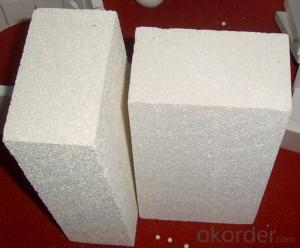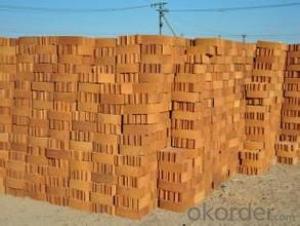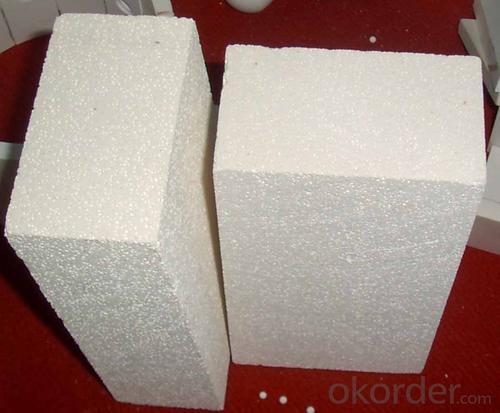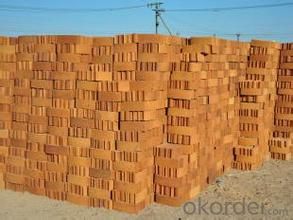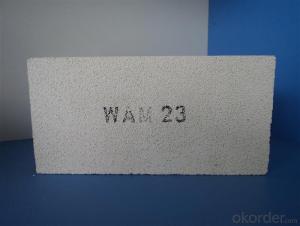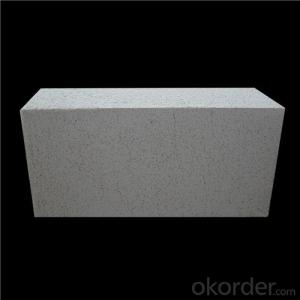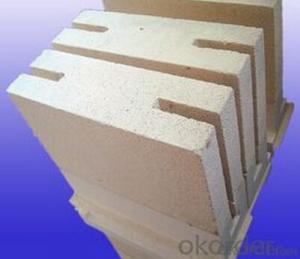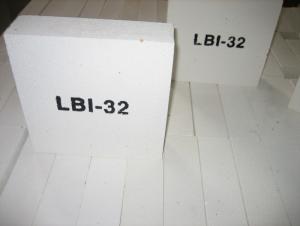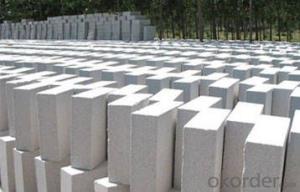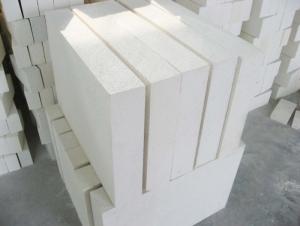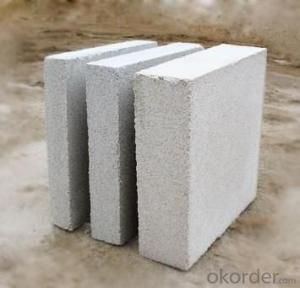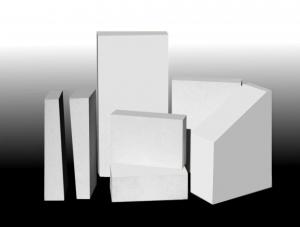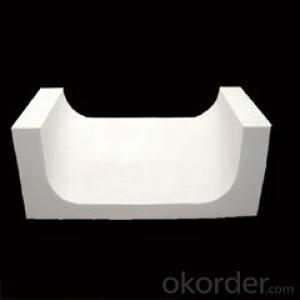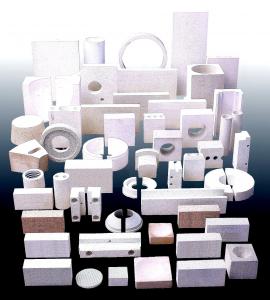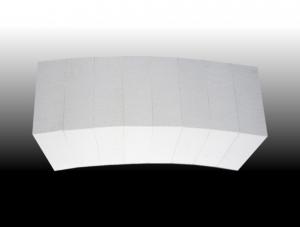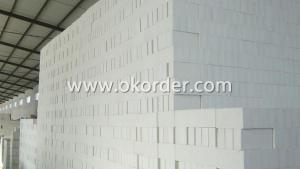Insulating Fire Brick - Refractory GJM Mullite Insulation Brick GJM-30
- Loading Port:
- Shanghai
- Payment Terms:
- TT OR LC
- Min Order Qty:
- 10 m.t.
- Supply Capability:
- 1000 m.t./month
OKorder Service Pledge
OKorder Financial Service
You Might Also Like
Refractory GJM Mullite Insulation Brick GJM-30Specifications
mullite insulation brick
1. Low thermal conductivity
2.High hot compressive strength
3.Perfect Energy saving
Refractory GJM Mullite Insulation Brick GJM-30Light weight mullite insulation furnace bricks refractory for sale
Advantage
1. Low thermal conductivity
2.High hot compressive strength
3.Perfect Energy saving
Refractory GJM Mullite Insulation Brick GJM-30
Description:
Lightweight mullite kiln bricks refractory for sale are made from good quality and superpure raw materials, with strictly classified fillings according to their grades. These fillings can form a uniform pore structure after burnt during the process of manufacture. Each grade of products has unique design to meet different thermal, physical and chomical demands.
Application:Refractory GJM Mullite Insulation Brick GJM-30
Mullite insulation furnace bricks refractory material can be used in linings or heat-insulating materials of the industries, such as, ethylene pyrolysis furnaces, tubular furnaces, reforming furnaces of synthetic ammonia, gas generators and high-temperature shullte kilns, etcRefractory GJM Mullite Insulation Brick GJM-30
Mullite Insulation furnace refractory material can be used as working lining, where contact with flames directly. This kind of brick can save the kiln energy very muchRefractory GJM Mullite Insulation Brick GJM-30
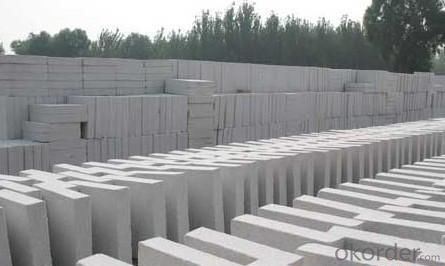
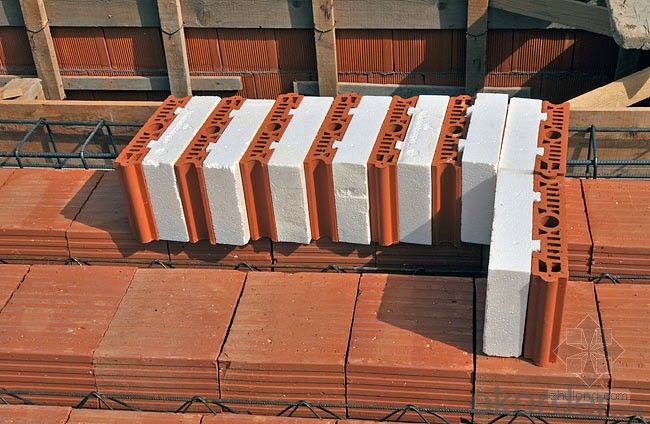
- Q: Are insulating fire bricks resistant to phosphoric acid?
- Insulating fire bricks are generally not resistant to phosphoric acid. Phosphoric acid is a strong acid that can react with and corrode many materials, including fire bricks. While some fire bricks may have a certain level of resistance to acidic environments, it is unlikely that insulating fire bricks would be able to withstand prolonged exposure to phosphoric acid without significant deterioration. It is therefore recommended to use acid-resistant materials, such as acid-resistant bricks or linings, when dealing with phosphoric acid or other strong acids.
- Q: What is the price of fireproof insulation material?
- Fire insulation materials are various, different specifications, grades of prices are different, according to market rules, there will be fluctuation, the most commonly used are insulation rock wool, insulation board, insulation bricks, fire blocking materials.
- Q: Can insulating fire bricks be used to build pizza ovens?
- Yes, insulating fire bricks can be used to build pizza ovens. Insulating fire bricks are designed to withstand high temperatures and provide excellent insulation, making them a suitable choice for constructing pizza ovens. These bricks have low thermal conductivity, which helps retain and distribute heat evenly throughout the oven. The insulating properties of the bricks help the oven reach and maintain the desired temperature, allowing for efficient and consistent cooking of pizzas. Additionally, insulating fire bricks are lightweight, making them easier to handle and install during the construction process. Overall, insulating fire bricks are a great option for building pizza ovens due to their ability to withstand high temperatures and provide effective insulation.
- Q: What is the porosity of insulating fire bricks?
- The porosity of insulating fire bricks refers to the amount of open space or voids within the material. Insulating fire bricks are designed to have a high porosity, typically ranging from 50% to 80%. This high porosity allows for excellent thermal insulation properties by trapping air or other insulating gases within the voids. The air pockets serve as barriers for heat transfer, reducing the conduction of thermal energy through the bricks. As a result, insulating fire bricks are highly effective in maintaining high temperatures within industrial furnaces, kilns, or other high-temperature applications while minimizing heat loss. The specific porosity of insulating fire bricks can vary depending on the manufacturing process and the desired level of insulation required for a particular application.
- Q: Are insulating fire bricks resistant to alkali vapor attack?
- Yes, insulating fire bricks are generally resistant to alkali vapor attack. They have a high degree of chemical stability and can withstand exposure to alkali vapors without significant degradation or damage.
- Q: Can insulating fire bricks be used in aluminum furnaces?
- Yes, insulating fire bricks can be used in aluminum furnaces. These bricks have excellent insulating properties and can withstand high temperatures, making them suitable for use in aluminum furnaces where thermal insulation is required.
- Q: Do insulating fire bricks require any special anchors or supports for installation?
- Yes, insulating fire bricks typically do not require any special anchors or supports for installation. They are lightweight and can be easily stacked or laid in place without additional reinforcement.
- Q: Are insulating fire bricks resistant to water absorption?
- Yes, insulating fire bricks are resistant to water absorption. These bricks are specifically designed to have low porosity and high density, which helps prevent water from being absorbed into their structure. This resistance to water absorption is important because exposure to water can lead to cracking or damage in fire bricks, reducing their insulation properties and overall longevity. Therefore, insulating fire bricks are an ideal choice for applications where moisture resistance is required, such as in the construction of kilns, furnaces, or other high-temperature environments.
- Q: Are insulating fire bricks resistant to carbon monoxide?
- Indeed, insulating fire bricks demonstrate a remarkable resistance to carbon monoxide. Tailored for enduring extreme temperatures, these bricks find common application in environments where they are likely to encounter both intense heat and corrosive agents, including carbon monoxide. The insulating nature of these bricks bestows upon them an exceptional ability to impede heat transfer, ensuring their structural integrity remains intact even in the presence of carbon monoxide and other combustible gases. This resistance to carbon monoxide renders insulating fire bricks a stellar choice for various settings like furnaces, kilns, and other high-temperature surroundings where the potential for carbon monoxide exposure looms.
- Q: Can insulating fire bricks be used in the construction of cremation chambers?
- Yes, insulating fire bricks can be used in the construction of cremation chambers. These bricks are designed to withstand high temperatures and provide excellent insulation, which is crucial in maintaining the desired temperature and preventing heat loss during the cremation process.
Send your message to us
Insulating Fire Brick - Refractory GJM Mullite Insulation Brick GJM-30
- Loading Port:
- Shanghai
- Payment Terms:
- TT OR LC
- Min Order Qty:
- 10 m.t.
- Supply Capability:
- 1000 m.t./month
OKorder Service Pledge
OKorder Financial Service
Similar products
Hot products
Hot Searches
Related keywords
